
Harvard Startups
Technology-driven ventures
Since 2000, Harvard’s research innovations have formed the basis of 289 new startup companies in Massachusetts and around the world, collectively raising more than $15.6 billion in financing.
Below, explore some of the companies that launched to commercialize innovations from Harvard in recent years. Their impact spans all of society — addressing education, health care, food and agriculture, energy, sustainability, high-tech goods, and much more.

Acetylon Pharmaceuticals
Selective, small-molecule histone deacetylase (HDAC) inhibitors
Notable Outcomes: Acetylon was acquired by Celgene.

Aldatu Biosciences
Infectious disease detection and genotyping
In 2012, the Botswana Harvard AIDS Institute Partnership — a decades-long collaboration chaired by Prof. Max Essex — was conducting a study of HIV transmission in newly pregnant women in Gabarone, Botswana. It was critical for clinicians to identify patients with drug-resistant strains of HIV in order to prescribe the medication that would be most effective — but the existing test was slow and expensive. A team of Harvard researchers developed a novel qPCR genotyping platform, called Pan-Degenerate Amplification and Adaptation (PANDAA), that can rapidly identify variations in clinically relevant genetic sequences. In 2014, the team launched a startup, Aldatu Biosciences, to make the technology widely available at low cost, and set Aldatu up as a public benefit corporation.
Notable Outcomes: Aldatu has expanded access to diagnostic testing for HIV and Lassa fever, and played a significant role in making testing for SARS-CoV-2 available in Boston in the early days of the COVID-19 pandemic.
Harvard Founders: David Raiser, PhD '15; and research associate Iain MacLeod
Beacon Bio
Repairing damaged eardrums
Following the 2013 Boston Marathon bombings, Prof. Jennifer Lewis' materials science group was inspired to apply innovations in 3D printing to develop a biocompatible graft to help heal perforated eardrums. In a project led by doctoral student Nicole Black, the Lewis Lab teamed up with clinical collaborators at Mass Eye and Ear to create the PhonoGraft. Together, they launched a startup called Beacon Bio, with Black as CEO.
Notable Outcomes: Beacon Bio was acquired by Desktop Metal in 2021.
Harvard Founders: Nicole Black, PhD '20; Prof. Jennifer Lewis
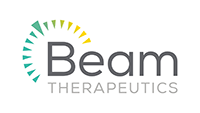
Beam Therapeutics
Precision medicines, using base editing to correct genes
The majority of disease-associated human DNA variations consist of point mutations — locations in the genome where a single base pair has been replaced by another. Innovations developed in the Harvard lab of Prof. David R. Liu enable the correction of single-base mutations in DNA with unprecedented precision and efficiency. “We developed programmable molecular machines that go to a target site of our choosing in the genomic DNA of a cell and directly convert one base to another base without making a double-stranded break in the DNA,” said Liu, who is a cofounder of Beam. The licensed technology opens up a wide range of human genetic conditions to the therapeutic promise of genome editing.

Biomillenia
Understanding the diversity of the human microbiome
Harvard innovations in “lab-on-a-chip” technology enable researchers to manipulate and analyze a vast number of cells by capturing them within millions of tiny droplets of fluid. Biomillenia launched to commercialize this technology platform to study bacterial cultures from the human microbiome, in order to identify undiscovered strains and biological products that may be harnessed to promote health and well-being.
Harvard Founders: Prof. David Weitz

Boréas Technologies
Low-power haptic technologies for electronic devices
Touch-based (haptic) inputs and feedback are integral to many of today’s electronic devices, but the components that produce these interactions tend to be power-hungry. Electrical engineers at Harvard developed circuitry that turns a low-voltage input into a high-voltage output to drive piezoelectric actuators on less battery power. Boréas Technologies is now commercializing the technology for integration into sophisticated, power-efficient devices.
Notable Outcomes: The company’s first product was a single-chip piezo actuator incorporating the high-voltage driver architecture.
Harvard Founders: Former doctoral student Simon Chaput; Prof. Gu-Yeon Wei
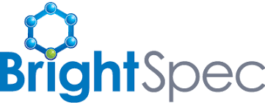
BrightSpec
Rotational spectroscopy instrument
Funding from the Blavatnik Biomedical Accelerator enabled Prof. John Doyle, a physicist, to develop a biomedical instrument technology with pharmaceutical applications. The technology was licensed to a startup, BrightSpec, which produces rotational spectroscopy instrumentation that is used for molecular structure determination.

Crimson Hexagon
Consumer insights from social media
Harvard researchers initially developed algorithms for automatic content analysis in order to understand public opinion about the 2008 presidential election and to help the WHO track mortality data in developing nations. Broadly useful, however, these algorithms helped launch Crimson Hexagon, Inc., which became a social media analytics firm with global operations.
Notable Outcomes: Crimson Hexagon merged with Brandwatch in 2019.
Harvard Founders: Prof. Gary King
CytoTronics
CMOS-based drug-discovery platform
Harvard electrical engineers, chemical biologists, and biomedical researchers led by Profs. Donhee Ham and Hongkun Park collaboratively developed a platform to non-invasively screen and analyze live cell cultures at single-cell spatial resolution. The technology uses advanced CMOS computer chip technology to enable a suite of electrical and electrochemical cell-based assays on a miniaturized device packed densely with electrodes. Members of the labs formed a startup, CytoTronics, that licensed the technology and intends to commercialize it for use in cell-based drug discovery.
Notable Outcomes: CytoTronics was acquired by Axion BioSystems in 2026
Harvard Founders: Jeffrey Abbott, PhD ’17; Vince Wu, PhD ’21; and Profs. Donhee Ham and Hongkun Park
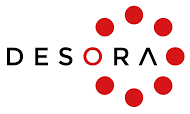
Desora
Data-driven cooking
Students in a Harvard engineering design course taught by Prof. Kit Parker and Peyton Nesmith, PhD ’17, developed a smart, software-enabled barbecue smoker with a specialized design to evenly distribute heat and smoke during cooking.
Notable Outcomes: Desora launched two products in 2018 and acquired Cinder, a “smart grill” company, later the same year.
Harvard Founders: Prof. Kit Parker; Michel Maalouly ’16; Yinka Ogunbiyi ’16

Editas Medicine
Human therapeutics through CRISPR genome editing
Researchers at Harvard made foundational contributions to the field of genome editing, enabling the use of technologies like CRISPR in the development of therapeutics to treat and prevent disease.
Harvard Founders: Prof. George Church; Prof. David R. Liu; and Prof. J. Keith Joung
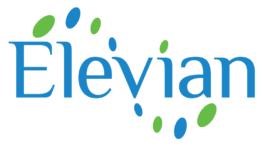
Elevian
Regenerative medicines for stroke recovery and aging-related diseases
Stem cell researchers at Harvard, studying models of disease in mice, demonstrated that a protein called GDF11 plays a role in restoring function to tissues in the aging heart, muscle, and brain. Elevian was founded to pursue the potential for GDF11 to treat and prevent multiple aging-related diseases.
Harvard Founders: Prof. Lee Rubin; Prof. Rich Lee; Prof. Amy Wagers; postdoc Ryan Walker; Brock Reeve

Eos Photonics
Chemical detection and analysis using quantum cascade lasers
Notable Outcomes: Eos Photonics merged with Pendar Medical in 2015, creating Pendar Technologies.
Harvard Founders: Prof. Federico Capasso; Christian Pfluegl; Laurent Diehl; Mark F. Witinski

FreeFlow Medical Devices
Coatings to resist the buildup of blood cells or pathogens on medical devices
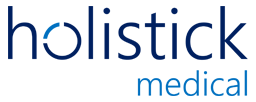
Holistick Medical
Minimally invasive device for heart repair
An interventional medical device developed in the lab of Prof. Conor Walsh, in collaboration with researchers at Brigham & Women’s Hospital, Boston Children’s Hospital, and MIT, offers a new, minimally invasive approach for the correction of structural heart defects. Designed to work with sticky and flexible materials such as patches, the device incorporates mechanisms to physiologically close a hole without requiring the use of sutures or rigid devices. Paris-based startup Holistick Medical licensed the technology.

Hyperlight Corp
Photonic integrated circuits for high-performance computing and communication
With support from Harvard's Physical Sciences & Engineering Accelerator, the lab of Prof. Marko Lončar made pioneering innovations in the nanofabrication and integration of lithium niobate (LiNbO3) structures. LiNbO3-based photonic products may address needs in telecommunication, high-performance computing, optical machine learning circuits, and quantum computing.
Harvard Founders: Prof. Marko Lončar; postdoc Mian Zhang

i2O Therapeutics
Oral delivery of therapeutics
i2O Therapeutics is exploiting the versatile properties of ionic liquids for the development of oral biologic therapeutics, with a focus on metabolic diseases, inflammatory diseases, and other indications. The ionic liquid platform technology was developed in the lab of Prof. Samir Mitragotri with support from the Blavatnik Biomedical Accelerator and can support oral solutions of a broad range of drugs including peptides, proteins, nucleic acids, and full-length antibodies.
Harvard Founders: Prof. Samir Mitragotri; Tyler Brown, PhD '19

Imago Rehab
Wearable soft robotics for physical therapy
A soft robotic glove and digital health platform developed by researchers in Prof. Conor Walsh's Harvard lab offer a personalized rehabilitation aid to improve hand mobility in stroke survivors. Actuators within the glove enhance the range and strength of the movement, and sensors enable fine-resolution remote assessment of patients’ motion and dexterity. Imago Rehab aims to commercialize the glove for patients' use at home, in conjunction with tele-rehab.
Harvard Founders: Prof. Conor Walsh; research fellow Chrissy Glover, MDes '19; and Kristin Nuckols

Immunis.AI
Early detection and assessment of disease
Iome Bio
Therapies to improve patient response to checkpoint blockade cancer drugs

IQ Proteomics
Proteomic analysis for drug discovery and development

Kula Bio
Biofertilizer that uses "energized" bacteria to boost nitrogen fixation
Harvard Founders: Prof. Daniel Nocera; Prof. Pam Silver; postdoc Kelsey Sakimoto
Learning Catalytics
Classroom engagement and assessment
Teaching large physics lectures at Harvard, Prof. Eric Mazur recognized that with the right software, students’ phones and tablets could be more versatile than the simple “clicker” devices often used for in-class assessments. He and postdoctoral fellow Brian Lukoff created the tools they wanted to use, and with Prof. Gary King, they launched a company that could make the product available to educators everywhere.
Notable Outcomes: Learning Catalytics was acquired by Pearson in 2013.
Harvard Founders: Prof. Eric Mazur; Prof. Gary King; postdoc Brian Lukoff

Magenta Therapeutics
Treating blood diseases and immune disorders
With support from the Blavatnik Biomedical Accelerator over two years, Prof. David Scadden developed a milder method to carry out the bone marrow conditioning necessary in advance of hematopoetic stem cell transplantation. The portfolio licensed by Magenta Therapeutics has the potential to transform blood stem cell transplants from a “treatment of last resort” into a safer, more efficient therapy for patients with blood diseases and immune disorders.
Harvard Founders: Prof. David Scadden

Metalenz
Flat optics for imaging, displays, and wearables
Conventional optical devices use bulky, curved lenses to focus and control light. Instead, applied physics researchers at Harvard designed and developed thin, flat “metalenses.” These nanostructured devices can precisely control the behavior of light on just a wafer-thin CMOS chip. Metalenz, Inc., aims to incorporate the technology into polarization cameras that may be used in remote sensing, 3D imaging, security applications, autonomous vehicles, and more.
Harvard Founders: Prof. Federico Capasso; Robert Devlin, PhD ’17
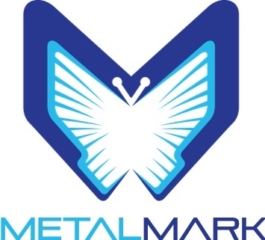
Metalmark Innovations
Cleaner air, inspired by butterfly wings
Researchers led by Prof. Joanna Aizenberg took inspiration from the nano-architecture of butterfly wings to develop special porous materials with catalysts embedded in their structure. The technology provides a novel way to remove harmful environmental pollutants from the air.
Harvard Founders: Prof. Joanna Aizenberg; Sissi Liu, MPP '03; and postdocs Tanya Shirman and Elijah Shirman

Nocion Therapeutics
Medications to treat cough, pain, itch, and inflammation
With support from the Blavatnik Biomedical Accelerator, researchers at Harvard and Boston Children’s Hospital led by Profs. Bruce Bean and Clifford Woolf identified novel sodium channel blockers that locally and selectively inhibit pain and itch signaling in activated nociceptors but spare other neurons. They founded Nocion Therapeutics to develop novel pharmaceuticals that may provide targeted, robust, and sustained relief for the treatment of serious medical conditions including cough, itch, pain, and inflammation.
Harvard Founders: Prof. Bruce Bean; Prof. Clifford Woolf

Obatala Sciences
Organ-on-a-chip devices for biomedical research
New Orleans-based Obatala Sciences licensed innovations from the lab of Prof. Kit Parker that enable researchers to culture and study human fat cells that model a diseased state in vitro. The technology may enable, for example, the testing of drugs for cancer or obesity without the need for animal models.
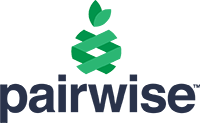
Pairwise
Addressing nutritional insecurity through gene editing
Harvard researchers’ innovations in genome editing have enabled extremely precise changes to the genetic code, at the level of a single nucleotide base: A, C, G, or T. Pairwise aims to leverage these new base-editing tools, along with existing knowledge of plant diversity and traits, to improve varieties of agricultural crops.
Harvard Founders: Prof. David Liu
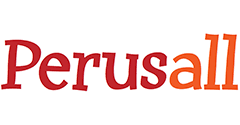
Perusall
A social learning platform for students
With support from OTD’s Physical Sciences & Engineering Accelerator, a team of Harvard researchers created educational technology that enables students to collaboratively annotate textbook readings in an online platform, marking up confusing sections and discussing the text outside of class. The technology draws on insights from data analytics, behavioral science, and educational research to move beyond conventional e-books and provide actionable feedback to teachers. The team founded Perusall to make the tool available more widely, in partnership with textbook publishers.
Notable Outcomes: As of 2021, Perusall is being used in classrooms in over 85 countries.
Harvard Founders: Prof. Gary King; Prof. Eric Mazur; lecturer Kelly Miller, PhD ’14; postdoctoral fellow Brian Lukoff
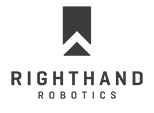
Righthand Robotics
Piece-picking robots for automatic order fulfillment
Innovations in robotic sensing and grasping, developed in Prof. Robert Howe’s lab and advanced with the strategic support of Harvard’s Physical Sciences and Engineering Accelerator, enabled the launch of Righthand Robotics. The company is commercializing robotic solutions that can manipulate a wide variety of items automatically, without calibration or parameter-tuning, with the potential to dramatically improve product handling by reducing costs and increasing speed in e-commerce warehouses.
Notable Outcomes: The company has several piece-picking products on the market.
Harvard Founders: Prof. Robert Howe; postdoc Yaro Tenzer; and Leif Jentoft, SM ’13, PhD ’14

Root Robotics
Educational robots that teach kids to code
Computer science professor Radhika Nagpal reflected on the inspiration for the Harvard-developed Root robot in a 2019 news article: “Most whiteboards in classrooms are backed with metal, so I thought it would be wonderful if a robot could automatically erase the whiteboard as I was teaching,” Prof. Nagpal said. “Once we had a working prototype, the educational potential of this robot was immediately obvious. If it could be programmed to detect ink, navigate to it, and erase it, then it could be used to teach students about coding algorithms of increasing complexity.”
Notable Outcomes: Root Robotics was acquired by iRobot in 2019, by which time the robot had already been used in more than 500 schools.
Harvard Founders: Prof. Radhika Nagpal; Raphael Cherney; Zivthan Dubrovsky

Sana Biotechnology

Semma Therapeutics
Cell therapy for diabetes
Basic stem cell research over the course of a decade in the lab of Prof. Doug Melton led to a groundbreaking approach to treating diabetes. His lab developed methods of generating pancreatic beta cells in vitro. "In type 1 diabetes,” Prof. Melton told Harvard Magazine in 2019, “you have a situation where patients have to prick their finger and measure the sugar in their blood, and then inject the right amount of insulin. The beta cell does both of those things. It measures blood sugars, and injects the right amount of insulin.” Semma Therapeutics launched to advance that work toward the clinic.
Notable Outcomes: Semma Therapeutics was acquired by Vertex in 2019.
Harvard Founders: Prof. Doug Melton; postdoc Felicia Pagliuca
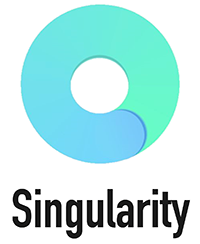
Singularity Energy
Data-driven tools to optimize energy consumption
With support from Harvard's Physical Sciences and Engineering Accelerator, researchers led by Prof. Na Li developed an AI-powered software platform that incorporates real-time CO2 signals from the grid into the optimization of energy resources. A startup, Singularity Energy, launched to build upon and commercialize that work, intending to help residential and commercial customers reduce carbon emissions.
Notable Outcomes: Singularity released a product suite, called Carbonara, in 2020.
Harvard Founders: Prof. Na Li; postdoc Wenbo Shi
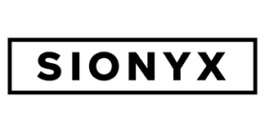
SiOnyx
Ultra-sensitive imaging sensors
A chance discovery in the lab – the creation of black silicon – led applied physicists at Harvard to develop a new type of photodetector chip that proved unusually sensitive, especially at infrared wavelengths. SiOnyx is commercializing image sensors and camera systems based on this technology, for applications including night vision, machine vision, and medical imaging.
Notable Outcomes: SiOnyx has brought several products to market, including color night-vision cameras for consumer use, as well as low-light camera systems for defense and space applications.
Harvard Founders: Prof. Eric Mazur; James Carey, PhD ‘04

Soft Robotics
Soft grasping systems for automated handling of food and other delicate items
The lab of Prof. George Whitesides has developed materials and components for robotic systems that incorporate elastomeric polymers and pneumatically actuated channels to mimic types of movement more often seen in the animal world than in traditional robotics. In the field of food processing, soft robotic actuators and grippers, combined with AI systems and computer vision, are enabling robotic systems to automatically manipulate delicate items — for example, baked goods and confections — at speed and scale. Soft Robotics, Inc., launched from the Whitesides Lab to build upon and commercialize Harvard researchers’ soft robotic innovations.
Notable Outcomes: Schmalz Group acquired the mGrip product family and related assets from Soft Robotics Inc. in 2024
Harvard Founders: Prof. George Whitesides
Syllable Life Sciences
Analyzing behavioral cues to improve diagnosis, drug development, and patient care
Notable Outcomes: Syllable was acquired in 2020.
Harvard Founders: Prof. Sandeep (Robert) Datta; Alex Wiltschko, PhD '16; postdoc Matt Johnson

Twentyeight-Seven Therapeutics
Small-molecule therapies for cancer and other diseases
Within cells, non-coding RNA (ncRNA) plays a key role in regulating the expression of oncogenes and other proteins that affect disease. Harvard researchers identified one such helpful ncRNA called Let-7; it suppresses the translation of oncogenes, reducing the development of tumors. But a troublesome protein called Lin28 can reduce levels of Let-7, and a lower level of Let-7 correlates with greater cancer metastasis. Building upon the researchers’ initial innovations, Twentyeight-Seven Therapeutics aims to discover and develop small-molecule therapies to target pathways like Lin28/Let-7 to treat cancer and other diseases.
Harvard Founders: Prof. George Daley; Prof. Richard Gregory; Prof. Frank Slack; Prof. Piotr Sliz

Verve Motion
Assistive robotic apparel for industrial workers
Harvard engineers led by Prof. Conor Walsh initially developed a soft, assistive exosuit intended for military applications, to reduce the fatigue and strain of carrying heavy loads. The resulting lightweight, textile-based, wearable device integrates sensing and actuation that helps to reduce the load on a joint during strenuous activity. Verve Motion, a startup launched by members of the lab, leverages this technology to develop wearable products for use by workers in industrial settings.
Notable Outcomes: Verve Motion released a first product, SafeLift, in 2020.
Harvard Founders: Prof. Conor Walsh; Ignacio Galiana; Michael Rouleau; Nathalie Degenhardt; Nicolas Menard
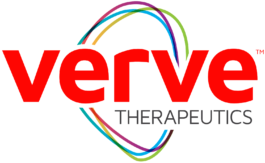
Verve Therapeutics
Developing single-course gene editing medicines to treat patients with cardiovascular disease
Verve Therapeutics has licensed foundational CRISPR gene-editing technologies, including the use of Cas9 and Cas12a (Cpf1), from Harvard University and the Broad Institute of MIT and Harvard, for human therapeutic applications against certain cardiovascular targets.
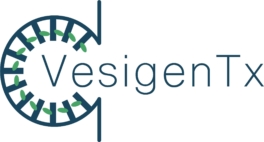
Vesigen Therapeutics
Delivering biologics to targets within cells
With support from the Blavatnik Biomedical Accelerator, Prof. Quan Lu harnessed the capabilities of newly discovered microvesicles called ARMMs to package and deliver large molecules (such as gene-editing complexes, RNA molecules, or other large proteins) to disease targets within cells. The innovations were licensed to Vesigen Therapeutics, a startup company which launched with investment led by Morningside Ventures and Leaps by Bayer. The company aims to build out the ARMMs platform as well as to advance numerous therapeutic agents into preclinical and clinical development.
Harvard Founders: Prof. Quan Lu

Vizgen
Visualizing gene expression to study health and disease
Vizgen is commercializing a biological imaging system based on MERFISH, a sophisticated method of multiplexed RNA detection developed in the Harvard lab of Prof. Xiaowei Zhuang. The MERFISH technology enables researchers to engage in spatial transcriptomics — visualizing gene expression right where it occurs — to better understand biological processes involved in human development and disease, within and among cells.
Harvard Founders: Prof. Xiaowei Zhuang; Prof. Jeffrey Moffitt; Jiang He, AM '12, PhD '16; and George Emanuel, PhD '18
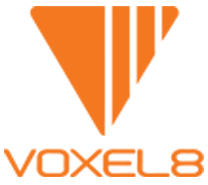
Voxel8
Multimaterial 3D printing
With support from Harvard's Physical Sciences & Engineering Accelerator, researchers in the lab of Prof. Jennifer A. Lewis developed a novel 3D-printing platform and new functional materials, enabling the multimaterial printing of complex structures and products. Members of the lab launched a startup, Voxel8, which licensed the core technology developed under this program for use in the rapid fabrication of athletic shoes and high-tech textiles.
Notable Outcomes: Voxel8 was acquired by Kornit Digital in 2021.
Harvard Founders: Prof. Jennifer Lewis; Travis Busbee; Jack Minardi; Daniel Oliver; Michael Bell
Whetlab
Automated analysis of massive data sets
Notable Outcomes: Whetlab was acquired by Twitter in 2015.

Zapata Computing
Software for quantum computers
Initially tackling tough questions in computational chemistry and machine learning, researchers in the lab of former Harvard Prof. Alán Aspuru-Guzik stepped into the quantum realm. Their startup, Zapata Computing, develops novel algorithms and applications through which quantum and classical computers may address complex mathematical questions beyond the capabilities of classical computing systems alone. Experts in chemistry, quantum computing, AI, and quantum optics, the founders are building commercial applications in areas including chemical modeling and logistics optimization.
Notable Outcomes: Zapata’s first software platform, Orquestra(R), unifies major software libraries and quantum backends.
Harvard Founders: Former Prof. Alán Aspuru-Guzik; postdocs Yudong Cao, Peter Johnson, and Jonathan Olson; and doctoral student Jhonathan Romero
